第52章 THE SEVEN CREAM JUGS(1)
"I suppose we shall never see Wilfred Pigeoncote here now that he has become heir to the baronetcy and to a lot of money," observed Mrs. Peter Pigeoncote regretfully to her husband.
"Well, we can hardly expect to," he replied, "seeing that we always choked him off from coming to see us when he was a prospective nobody. I don't think I've set eyes on him since he was a boy of twelve."
"There was a reason for not wanting to encourage his acquaintanceship," said Mrs. Peter. "With that notorious failing of his he was not the sort of person one wanted in one's house."
"Well, the failing still exists, doesn't it?" said her husband; "or do you suppose a reform of character is entailed along with the estate?"
"Oh, of course, there is still that drawback," admitted the wife, "but one would like to make the acquaintance of the future head of the family, if only out of mere curiosity. Besides, cynicism apart, his being rich will make a difference in the way people will look at his failing. When a man is absolutely wealthy, not merely well-to-do, all suspicion of sordid motive naturally disappears; the thing becomes merely a tiresome malady."
Wilfrid Pigeoncote had suddenly become heir to his uncle, Sir Wilfrid Pigeoncote, on the death of his cousin, Major Wilfrid Pigeoncote, who had succumbed to the after-effects of a polo accident. (A Wilfrid Pigeoncote had covered himself with honours in the course of Marlborough's campaigns, and the name Wilfrid had been a baptismal weakness in the family ever since.) The new heir to the family dignity and estates was a young man of about five-and-twenty, who was known more by reputation than by person to a wide circle of cousins and kinsfolk. And the reputation was an unpleasant one.
The numerous other Wilfrids in the family were distinguished one from another chiefly by the names of their residences or professions, as Wilfrid of Hubbledown, and young Wilfrid the Gunner, but this particular scion was known by the ignominious and expressive label of Wilfrid the Snatcher. From his late schooldays onward he had been possessed by an acute and obstinate form of kleptomania; he had the acquisitive instinct of the collector without any of the collector's discrimination. Anything that was smaller and more portable than a sideboard, and above the value of ninepence, had an irresistible attraction for him, provided that it fulfilled the necessary condition of belonging to some one else. On the rare occasions when he was included in a country-house party, it was usual and almost necessary for his host, or some member of the family, to make a friendly inquisition through his baggage on the eve of his departure, to see if he had packed up "by mistake" any one else's property. The search usually produced a large and varied yield.
"This is funny," said Peter Pigeoncote to his wife, some half-hour after their conversation; "here's a telegram from Wilfrid, saying he's passing through here in his motor, and would like to stop and pay us his respects. Can stay for the night if it doesn't inconvenience us. Signed 'Wilfrid Pigeoncote.' Must be the Snatcher; none of the others have a motor. I suppose he's bringing us a present for the silver wedding."
"Good gracious!" said Mrs. Peter, as a thought struck her; "this is rather an awkward time to have a person with his failing in the house. All those silver presents set out in the drawing-room, and others coming by every post; I hardly know what we've got and what are still to come. We can't lock them all up; he's sure to want to see them."
"We must keep a sharp look-out, that's all," said Peter reassuringly.
"But these practised kleptomaniacs are so clever," said his wife, apprehensively, "and it will be so awkward if he suspects that we are watching him."
Awkwardness was indeed the prevailing note that evening when the passing traveller was being entertained. The talk flitted nervously and hurriedly from one impersonal topic to another. The guest had none of the furtive, half-apologetic air that his cousins had rather expected to find; he was polite, well-assured, and, perhaps, just a little inclined to "put on side". His hosts, on the other hand, wore an uneasy manner that might have been the hallmark of conscious depravity. In the drawing-room, after dinner, their nervousness and awkwardness increased.
"Oh, we haven't shown you the silver-wedding presents," said Mrs.
Peter, suddenly, as though struck by a brilliant idea for entertaining the guest; "here they all are. Such nice, useful gifts. A few duplicates, of course."
"Seven cream jugs," put in Peter.
"Yes, isn't it annoying," went on Mrs. Peter; "seven of them. We feel that we must live on cream for the rest of our lives. Of course, some of them can be changed."
Wilfrid occupied himself chiefly with such of the gifts as were of antique interest, carrying one or two of them over to the lamp to examine their marks. The anxiety of his hosts at these moments resembled the solicitude of a cat whose newly born kittens are being handed round for inspection.
"Let me see; did you give me back the mustard-pot? This is its place here," piped Mrs. Peter.
"Sorry. I put it down by the claret-jug," said Wilfrid, busy with another object.
"Oh, just let me have the sugar-sifter again," asked Mrs. Peter, dogged determination showing through her nervousness; "I must label it who it comes from before I forget."
Vigilance was not completely crowned with a sense of victory. After they had said "Good-night" to their visitor, Mrs. Peter expressed her conviction that he had taken something.
"I fancy, by his manner, that there was something up," corroborated her husband; "do you miss anything?"